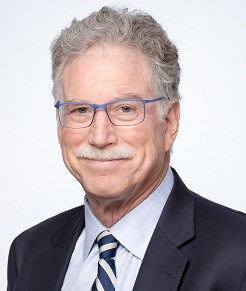Conversations in Cardiology: For Physicians, How Old Is Too Old?
Morton Kern, MD, often engages his colleagues via email in brief, informal dialogue on clinically relevant topics in cardiology.


Morton Kern, MD, of VA Long Beach Healthcare System and University of California, Irvine, often engages his colleagues via email in brief, informal dialogue on clinically relevant topics in interventional cardiology. With permission from the participants, TCTMD presents their conversations for the benefit of the cardiology community. Your feedback is welcome—feel free to comment at the bottom of the page.
Paul S. Teirstein, MD (Scripps Clinic, La Jolla, CA), asks:
A few years ago Scripps instituted formal neuropsychiatric testing of competency to maintain hospital privileges every 2 years. This starts with a 1-hour computer test, which I am told is very annoying and boring, plus a 1-hour physical exam. If you don’t pass the screening test, you go on to a 4-day “high stakes” exam. One of our providers who passed the test 2 years ago is now objecting to this test. I am wondering if this kind of competency test is becoming more common these days. Do other hospitals require physician testing at age 70? I understand a hospital wanting to mitigate its exposure to patient claims of abuse due to incompetent physicians, but what about its exposure to physician claims of abuse due to invalid testing requirements?
Neal Kleiman, MD (Houston Methodist Hospital, TX):
A 4-day exam?
David Cohen, MD (St. Francis Hospital, Roslyn, NY):
Hmmm... I'm no lawyer, but my first impression is that seems like easy prey for an age-discrimination lawsuit. If I think about the airline pilot analogy, I believe every pilot has to do the same recertification at regular intervals. I don't see why that wouldn't be the case for physicians. So, you either need to test everyone in the same fashion or no one.
Just my 2 cents...
Charanjit Rihal, MD (Mayo Clinic, Rochester, MN):
Dave, you are right. Age discrimination is expressly prohibited by the US Equal Employment Opportunity Commission.
Any hospital programs likely have to be based on more than just age, or be broadly applicable, say every few years. We all are going to be wrestling with this given the demographics of the 1,000,000+ physicians in the US. Will be interested if any of your institutions have routine programs to assess competency.
Zoltan Turi, MD (Hackensack University Medical Center, NJ):
Just a clarification on the Federal Aviation Administration (FAA) and Dave’s comment—Federal Aviation Regulations Part 121 (airline operations) requires examination of airline pilots every 6 months regardless of age (primary physical exams, eye and hearing tests, etc), but to the best of my knowledge neurocognitive testing is not included. I suspect the physical exam is also less involved than what Paul described, though there is a list of medical conditions that are exclusionary (I was a private pilot; those rules are much less stringent). There is a hard stop at age 65—it used to be 60 until about 15 years ago—beyond which you cannot be an airline pilot (also applies to international carriers). You can fly nonscheduled aircraft (charters) and work for other commercial operations, however. As to the cognitive testing, there is repeated and frequent simulator training and testing of various types by the carriers and that includes many of the things that would be pertinent to neurocognitive function. But overall, I don’t think the pilot analogy applies that closely.
There’s a saying in the flying world: “There are old pilots, and there are bold pilots, but there are no old bold pilots.”
Michael Ragosta, MD (UVA Health, Charlottesville, VA):
Several years ago, our credentials committee implemented a mandatory evaluation of physicians over 70 as a requirement to maintain privileges. I believe neuropsychiatric testing is one component. The physician who runs that program does an excellent job with it, and the program is actually very well received by our medical staff.
Interestingly, some physicians choose to retire rather than go through the evaluation. Those that proceed with the evaluation have all passed, and it becomes a badge of honor that they can prove they are cognitively fit for practice. I suspect some of the ones that choose to retire may suspect that they will not pass and may have noted some cognitive decline. It’s definitely a sensitive area, and the phenomenon of age-related cognitive decline is real and can impact physician performance. While these programs are not perfect, their intent is good.
There are old pilots, and there are bold pilots, but there are no old bold pilots. Zoltan Turi
Mitchell W. Krucoff, MD (Duke University Medical Center, Durham, NC):
Duke University actually required clinical retirement at age 70 until about 8 years ago, when a band of merry olde folks led the “old folks rule” revolt. It went up to the Board of Trustees, but the bottom line was the requirement was so simply written (“at age 70”) that it clearly was age discrimination, which is illegal in this country. The Board asked for a petition signed by 500 faculty. They got one signed by 1,500 faculty . . . and the rule was abolished.
Maybe the important point is to recognize that anyone who goes into interventional cardiology is a priori crazy—age and further testing has nothing to do with it. :-)
Kenneth Rosenfield, MD (Massachusetts General Hospital):
I don’t know about any of you all, but I personally have been 39 years old for MANY years!
Srihari S. Naidu, MD (Westchester Medical Center, Valhalla, NY):
I think this is a good time for our leaders to proactively talk about this and help physicians plan proactively for a fun, secure, and well-deserved retirement. This is not something previous generations really paid attention to, and of course a lot depends on individualized financial planning. This also ties into wellness, work-life balance, and career planning.
Stephen Ramee, MD (Ochsner Medical Center, New Orleans, LA), replies:
I can't imagine what our field would be like without many of the 65+ year olds on this email chain. Knowledge and skill can be learned, but there is no substitute for experience.
Kirk Garratt, MD, MSc (ChristianaCare, Newark, DE):
I agree with Steve, the wisdom of senior clinicians has always had great value. In the case of interventional cardiology, those senior physicians are the founding mothers and fathers of our discipline. We want to keep them in the conversation for as long as possible.
We also need to safeguard our practice against those who are losing skills to the point of being a hazard. We recruited James Ellison, MD, MPH, an incredible geriatric neuropsychiatrist (editor-in-chief for the Journal of Geriatric Psychiatry and Neurology) from Harvard about 7 years ago. He helped us set up a late career clinician policy. Clinicians 70 and older are required to take a screening evaluation (physical exam, performance review, and cognitive testing) every 2 years as part of our biennial recredentialing. Nonsatisfactory findings are referred to a committee made up of clinicians (including at least one >65yo) who provide input to relevant chairs/leaders. The goal is to provide assistance to the doctor that mitigates loss of ability. If that can’t be achieved, then privilege restrictions can be made to protect patients. I think it’s very rational and fair to everybody.
Dr. Ellison wrote a nice review on this topic in 2018: Soonsawat A, Tanaka G, Lammando MA, Ahmed I, Ellison JM. Cognitively Impaired Physicians: How Do We Detect Them? How Do We Assist Them? Am J Geriatr Psychiatry. 2018 Jun;26(6):631-640.
Cohen:
This sounds very similar to the Scripps program, Kirk. Can you provide any general information on the number of physicians who have gone through the testing program and their "pass" or "fail" rates?
Garratt:
Great question, Dave. We worked on the policy through the pandemic, and it’s only been approved recently; the build-and-approve process took a long time, as you might expect. We all went through credential renewal about 6 months ago, but I don’t think this policy was in force for that cycle. If so, it’ll be another 18 months or so before we know its impact on the workforce.
George Vetrovec, MD (VCU Pauley Heart Center, Richmond, VA):
This is a very pertinent but anxiety-producing discussion.
I am unaware of any large trials—studies are mostly single center and recent experience, as this is an evolving issue.
That being said, JAMA published a summary of experience from Yale in 2020 (with two editorials, which can be found here and here). Based on this report of 181 evaluated physicians over 70 years of age tested between 2016-2019, 12.7% were considered cognitively impaired.
The Bottom Line From Mort Kern
Age and wisdom travel together but sometimes diverge. As pointed out for hospital administrations, can they implement a routine, age-related screening for neurocognitive impairment? Clearly, age discrimination is not permitted, but what then should be a trigger for testing a potentially impaired physician? As physician colleagues working together, we should be the ones to help identify those among us who are becoming functionally challenged and, if possible, facilitate a smooth career transition for those physicians who need help. Certainly, this is a big ask but an important one.



Comments